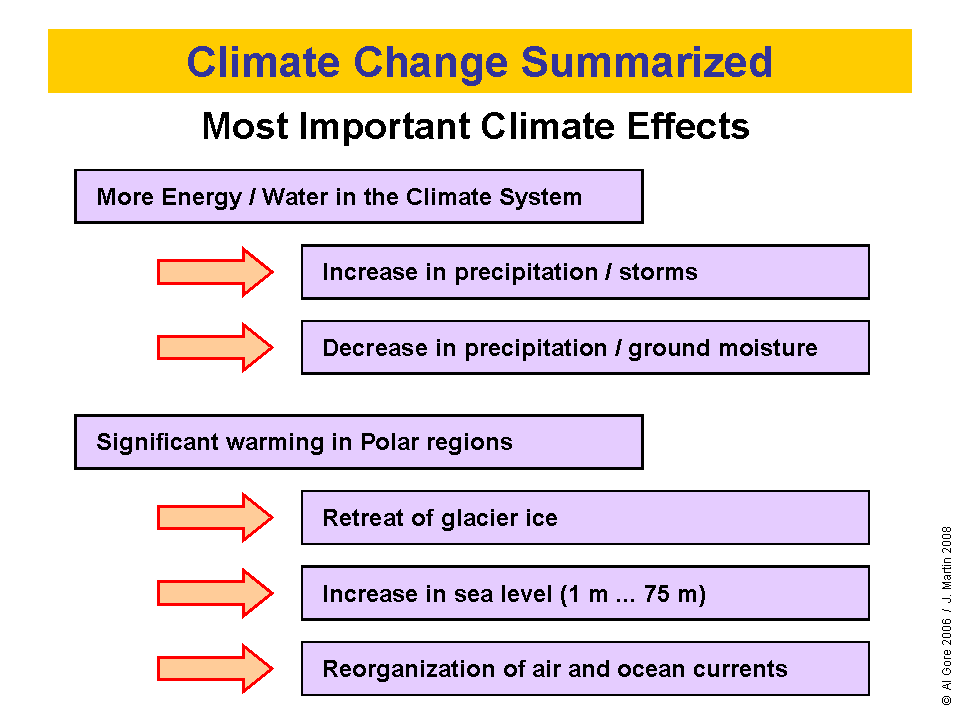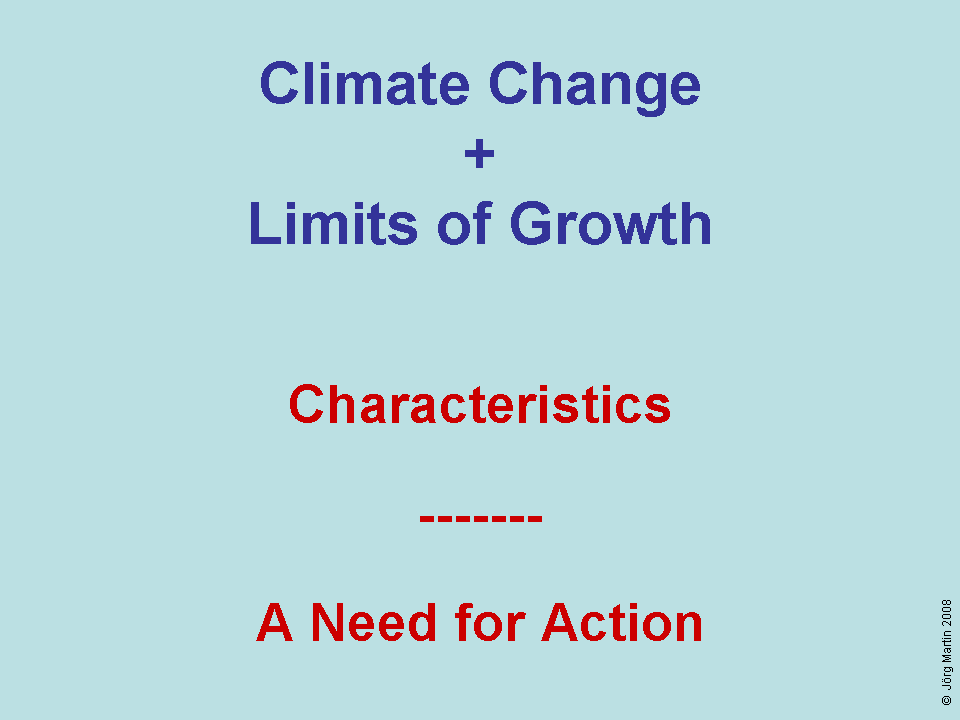
| Basics of Warming | |
| • | Climate Factors |
| • | Climate Effects |
| Consequences | |
| • | for Civilisation |
| • | for Ecosystem |
| • | for Other Topics |
More Energy / Water in the Climate System
Due to the increased energy supply in the climate system, the speed, power and polarity[08] of all climate related processes is escalated.
In areas of low pressure, more and stronger precipitation falls while the snow cover retreats. The energy of storms increases [09][10]. Immediate consequences include flooding and storm damage.
In areas of high pressure, the air temperature rises. Precipitation and ground moisture thereby decrease. Immediate consequences include declines in harvest and drought catastrophes.
Significant Warming in Polar Regions
Climate change causes a decline in albedo, primarily in the Arctic regions. The polar ice caps melt. The temperature level there rises considerably.
Due to these higher temperatures, glacier ice (Greenland, Antarctica) recedes. In the worst case (total loss of ice cover), the sea level would rise by around 75 meters[11]. A further increase by a maximum of around 4 meters of additional water volume must be reckoned with as a result of the rising temperature[12].
In Greenland[13] and the West Antarctic, the flow rate of glaciers increases as the stability of the ice caps decreases. In the event of their failure, the sea level would rise quickly by up to 14 meters (Greenland is in danger of meltwater breakouts with barely foreseeable effects, such as high tidal waves[14]. The glacier ice in the west Antarctic has complex layers and could abruptly break apart, with comparable results)[15].
The period of time remaining before the onset of such events can be considerably overestimated. So it was for the Larsen B ice shelf in the Antarctic peninsula at the beginning of 2002, for which a lifespan of 100 years was predicted. Shortly thereafter, it broke apart within 34 days[16]. The event occurred around 1000 times more quickly than expected (in the opinion of the author, therefore, the acute failure of the West Antarctic glacier plate - and a sudden rise of the sea level by 6 to 7 meters - cannot be ruled out with any certainty.)!
The temperature level in the Polar regions rises at a considerably faster pace than in the Equatorial region[17]. This development will probably lead to a complete reorganization of the air and ocean currents. The thermohaline processes, which drive the entire ocean current system over the Gulf Stream[18], could come to a halt.
| Associated Slide |
 |
| Illustrating Slides |
 |
| Slide 1 |